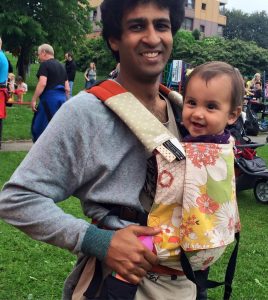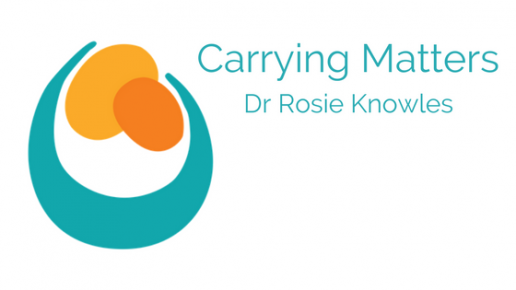Fathers' mental health matters: their involvement right from the start helps the whole family to thrive.
It is important to recognise that fathers can suffer with mental health problems after their baby is born, up to 1 in 10 fathers are affected, but overall this problem is widely unrecognised.
It seems to hit around baby’s 3-6month age, after the fourth trimester is over. It is more common in young dads, those whose partners are also struggling with their mental health, or if relationships were strained throughout pregnancy. The challenge of low incomes, or the feeling of greater responsibility to provide can be tough. Fathers can feel disconnected or excluded from the bond developing between mother and baby.
We need to do much more to support fathers, as they matter to their families, and this often begins before baby arrives. Couples who have a healthy loving relationship before pregnancy are more likely to be able to support each other during birth and beyond, and dads who are present for the birth are much more likely to get early skin to skin. This can be vital where mother has a Caesarean section and/or has to be separated from her baby at birth; dad becomes the primary caregiver with many positive outcomes for baby (see more here) and for father, due to the oxytocin release that helps to “rewire” his brain, to become a father.
When dads have good relationships with the mother of their child/ren and are able to support her practically and emotionally, family outcomes are better. She feels more affirmed and confident in her parenting, and it is mutually beneficial, and the children benefit from this shared stability. This is only possible if dads are feeling mentally well; and if they aren’t, they need recognition and support.
When dads are lovingly involved from the start, children are more likely to become confident and emotionally secure, better able to regulate their feelings and educational outcomes are better. You can read more in this report. Dads, on the whole tend to provide more active play and encourage exploration, the other half of the “circle of security.” A securely attached child who is confident in their foundations of loving acceptance is more likely to happily explore, trusting absolutely that they can come back to the security of their parent who will be there when needed.
It’s obvious… dads matter, to their partners and to their children, so we need to support them better!
If you are a dad or know one who may be feeling low or struggling, do encourage them that it is common and they are far from alone, there is help available. This blog post from the NCT may help, as may Pandas and Dads Matter It can be hard for men to speak out; I know this as a GP, it can take months before men feel able to seek help and it is often as a last resort. I wish they felt able to come sooner, and I recognise this is in part due to the message society sends them about “being manly” and “men don’t cry.” Well, men do have feelings, and being able to recognise them and seek help without judgement is important. We need to create a culture where this feels more possible for more men.
What else can help?

A baby carrier may be very useful here. There are so many options around these days, comfortable and simple and if dads feel more confident with clips and straps, there will be something to suit. Being able to take your baby for a walk sleeping peacefully on your chest, or hearing them chatting and giggling happily on your back trusting you completely will build feelings of connection in both parent and baby. It may well also lift your own spirits and feelings of confidence in your ability to care for your baby. You are more likely to talk to your baby in a carrier on your front or back, which builds relationship as well as their social and language skills.
It will also help the child to have several secure relationships, sharing the “beloved burden” of care around both parents and even the wider family. You can take your baby for a walk to give your partner a break, you can carry them to ensure you get to build the same strength of bonds if your partner is breastfeeding, and ensure baby always recognises you.
Do go and visit your local sling library or consultant to try some options out!

